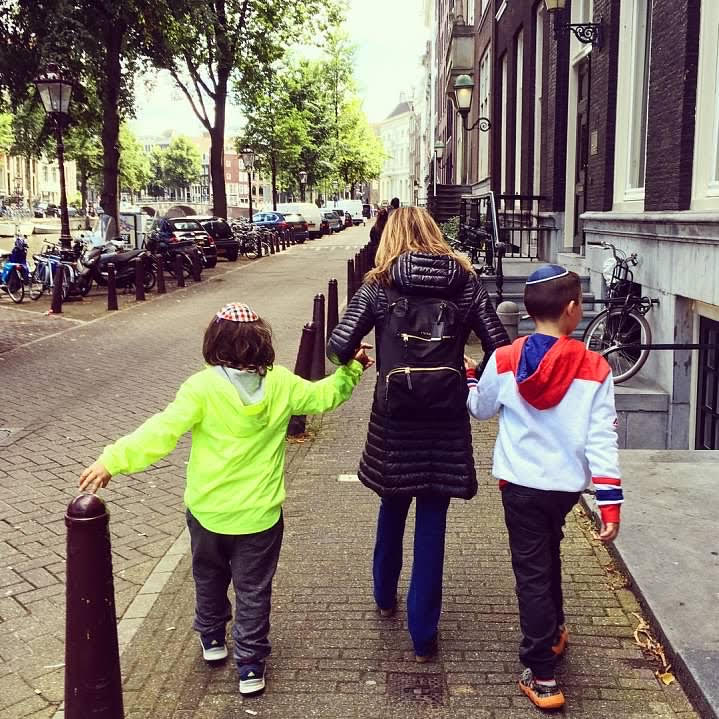
The other night, while I was getting out of my car, my oldest son, standing on the porch, excitedly yelled out, “Mom, look at this lego structure I made!”
I couldn’t see it, but I could tell how happy he was to show it to me. “It looks neat from here. Let me get closer.”
My husband appeared, knowing how tired I was, “Mom worked a long day. Why don’t you let her come inside first and settle in?”
“But, Dad, she looks happy, like she’s interested right now before she gets too tired.”
My heart sank. Do I usually seem uninterested? Ugh. How awful. I’m sure my patients don’t think that. I seem to be able to pay close attention to just about everything they say.
This is my oldest—soon to be 14-year-old son—the teenager. I only have four years left of his (waning) interest in me. How sad that he has to audition on the front porch as I’m coming in from work to see if he can capture my interest. What has happened to my life? Or a better question: Why can’t I get this balance right? Why do my patients always get everything — all of my attention, but my children, who never asked to be born, have to beg for it?
I’ve spoken about EE or “emotional exhaustion” — one of the three pillars of physician burnout syndrome so many times that at this point, I could probably recite it while simultaneously clicking 84 times to complete an electronic progress note.
No, it is not physician fatigue. No aspect of physician burnout is. It’s not about stress either. This aspect of burnout is about “having nothing left to give to patients.”
But what about this elephant in the room?
You give everything to your patients during the day and are subsequently so emotionally drained that you truly have nothing to give to yourself or your loved ones? Where does that variable fit it? Why doesn’t that have a measurable value? It certainly makes me feel terrible. And there is no easy answer because in the culture of medicine, neither “we” or extensions of “we” can ever supersede the patient. We all agreed to that. But it isn’t sustainable. It must be a part of physician burnout syndrome, whether you have children or not. We all have lives that are at risk of not being nurtured.
Over the last decade, we — including yours truly — have done very well in utilizing the Maslach Burnout Inventory (MBI) to assess physician burnout rate in the context of the what’s, if’s, and fixes.
From the first time, I gave a talk about this at an American Psychiatric Association conference in 2012 — I have never questioned the fundamental concepts of physician burnout syndrome. Until now.
What happens when you have followed your oath, scrupulously, and provided care where the patient comes first. You listen. You’re diligent.
You check collateral and talk to the geriatric patients’ family, PCP, neurologist. You check labs. EKGs. You get records. You collaborate with the inpatient doctors. You explain mechanism action of medications, review labs, and CTs with patients to educate them about their care with the hope that they will become invested partners — all the things we check off with those clicks.
You type a personalized step-by-step AVS for patients with dementia.
No smart phrases. You write letters to ICE about considering a Franco Gonzalez evaluation (capacity) for your patients with AIDS dementia facing deportation.
You take calls from other doctors in ERs and urgent cares about PTs that aren’t yours or even in your network but desperately need a psychiatrist, or at least the doc could use recommendations since there is no consult psychiatrist available for that hospital. I’m always happy to help a colleague. No problem.
I don’t feel I am doing anything extra special with any of this. In fact, I can easily feel I’m not doing a good job because I can fall behind with my notes without my scribe very quickly as my documentation requirements are rigorous.
But overall, I feel I am giving and doing what I’m supposed to be doing to be a good physician. Yet at an enormous cost, I hadn’t considered.
I drain my reserves daily for everything else, leaving kids with the fumes that are leftover. These kids I desperately wanted whose needs have sublimated as they have grown. It may sound strange, but when they were younger, what I had leftover was enough because their needs were more basic. More visceral. Physical comfort once we reconnected.
Holding, feeding, bathing. Reading a book. Now they are independent in their ADLs, but they need parenting that is more nuanced. They are more complex, even mysterious at times. And yet I am tapped out by the time the opportunity arises for me to meet the challenge of meeting their emotional needs. I don’t have EE — my patients seem to get first dibs on my emotional reserves — but it is not a bottomless reservoir.
When I arrive to my front porch, I’m emotionally drained. There is nothing left for my family or myself. Maybe we should consider another variable in physician burnout syndrome worth measuring: ED — being emotionally drained. I sure feel it is a contributor with significant sequela. It has at least raised a flag in my understanding of physician burnout, even after all of these years.
Torie Sepah is a psychiatrist and can be reached on Twitter @toriesepahmd.
Image credit: Torie Sepah
